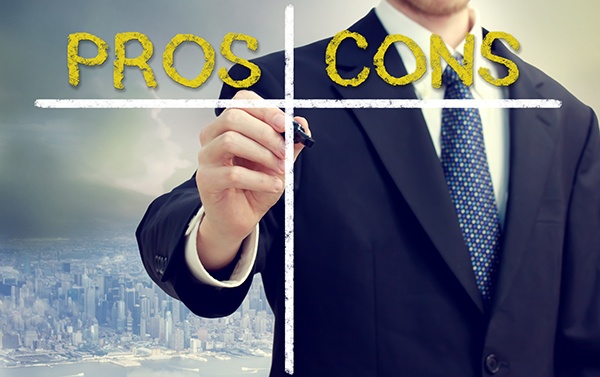 If you're getting ready to lease a commercial space, finding the right property or unit is just the first step in the process. To get the most benefits out of the right space or property, you need the right lease agreement in place between you and your landlord and that means deciding whether a short or long-term lease is the better option for your business.
If you're getting ready to lease a commercial space, finding the right property or unit is just the first step in the process. To get the most benefits out of the right space or property, you need the right lease agreement in place between you and your landlord and that means deciding whether a short or long-term lease is the better option for your business.
So which is best for companies?
There is no single answer. Short and long-term leases both have distinct benefits and drawbacks that you need to be aware of before you begin lease discussions with a prospective landlord.
Advantages of a Short-Term Lease
- Your Business Is More Mobile. With a short-term lease, you're not limited to your current space for long. If the location proves to be less than ideal, you decide a particular market isn't right or your business grows by leaps and bounds, you'll have the chance to relocate.
- The Process Will Move Faster. Short-term leases are usually much less complex, so if you need space quickly, they can be a good option.
Disadvantages of a Short-Term Lease
- Your Future Is Less Certain. With a short-term lease, you don't have many guarantees about the future. It's not easy to forecast expenses when you don't know how much rent will cost in the future. There is also always a risk that the building may sell or your current landlord may decide to take the building in a new direction, leaving you unable to renew.
- You May Pay More for Your Lease. Short-term leases often end up being more costly for businesses not only because the rental rates are usually higher, but also due to the higher risk of costs associated with relocating once leases are up.
Advantages of a Long-Term Lease
- You Have More Bargaining Power. Landlords typically prefer long-term leases, and if you're willing to commit to one, you have more leverage to negotiate. Concessions like lower rents and more flexible terms can make long-term leases very attractive.
- You Can Plan for the Future. Once the lease is signed, you can easily forecast rental costs and be assured that you won't have relocation costs for a set period of time.
Disadvantages of a Long-Term Lease
- Negotiations May Be Lengthy. The complex nature of long-term leases can make for a slower negotiation process.
- You Are Locked In--Probably. With long-term leases, you usually won't have the flexibility to move into a different market or to expand into a new location. That said, some landlords will offer break options at certain times during the lease period, giving you the chance to move if you need to.
Ultimately, you need to think of your company's future as you consider whether to enter into a long or short-term lease agreement. If you're not sure whether or not you want to remain in the area, suspect that a period of growth is on the horizon or are otherwise uncertain of the future, a short-term lease will likely be the best choice for your company's needs. On the other hand, businesses that are ready to become established in an area, are no longer expanding rapidly and are financially stable can benefit largely from a long-term lease.
Other great Commercial Lease articles:
Commercial Office Leasing 101
6 Things to Look for When Leasing Office Space
5 Tips for Negotiating a Great Commercial Lease
Subscribe to our blog for CRE tips!!








